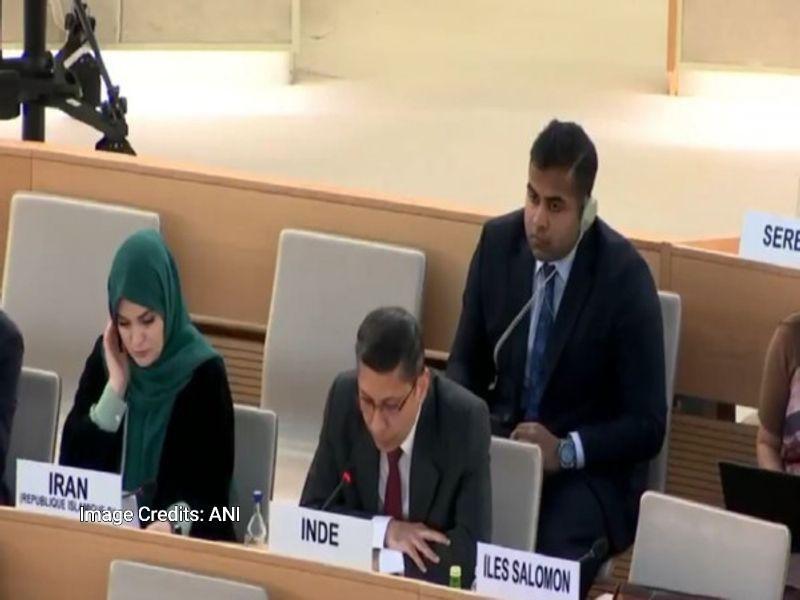
Unfounded, Baseless: India on UNHRC Chief’s Remarks on J&K, Manipur
On Monday, India’s permanent representative to the United Nations, Arindam Bagchi, strongly condemned the statement made by UN human rights chief, Volker Türk, regarding Jammu and Kashmir (J&K) and Manipur. The UNHRC chief’s remarks were labeled as “unfounded and baseless” by India, with Bagchi terming them as “cherry-picking” and lacking a comprehensive understanding of the situation on the ground.
In his statement, Türk expressed concerns over the restrictive laws in J&K, which were imposed after the state’s special status was revoked in 2019. He also called for addressing the violence and human rights issues in Manipur, a northeastern state that has been grappling with insurgency and militancy for decades.
India, however, rejected Türk’s remarks, saying that they were based on incomplete and inaccurate information. The government emphasized that J&K has made significant progress in terms of economic development, infrastructure, and tourism since the revocation of Article 370, which granted special status to the state.
“The world’s largest democracy continues to be a healthy, vibrant and pluralistic society,” Bagchi said, refuting the UNHRC chief’s claims. He added that India is committed to the protection and promotion of human rights, and that the country has taken numerous steps to ensure the well-being and dignity of all its citizens.
India’s defense of its actions in J&K and Manipur is not without merit. The state of J&K has indeed witnessed significant economic growth and development in recent years, with the government investing heavily in infrastructure projects, education, and healthcare. The state’s tourism industry has also seen a surge, with visitors drawn to its natural beauty and cultural heritage.
Similarly, Manipur has also seen efforts to address the issue of insurgency and militancy. The government has launched several initiatives to engage with civil society groups and to address the concerns of the local population. The state has also seen significant investment in infrastructure development, education, and healthcare, which has improved the overall quality of life for its citizens.
It is also worth noting that the situation in J&K and Manipur is complex and multifaceted. The issues of violence, human rights abuses, and militancy are deeply ingrained and cannot be solved overnight. Any effort to address these issues requires a nuanced and comprehensive approach that takes into account the historical, cultural, and political context of the region.
In this regard, India’s approach to J&K and Manipur has been criticized for being heavy-handed and lacking in sensitivity. The government’s decision to impose restrictive laws in J&K, including the Public Safety Act (PSA), has been criticized for being used to silence dissent and suppress political opposition.
Similarly, the situation in Manipur has been marked by allegations of human rights abuses, including extrajudicial killings and torture, by security forces. The government’s response to these allegations has been criticized for being inadequate and lacking in transparency.
In conclusion, while India’s rejection of the UNHRC chief’s remarks is understandable, it is also important to acknowledge the concerns and criticisms that have been raised about the situation in J&K and Manipur. The government’s approach to these issues needs to be more nuanced and sensitive, taking into account the complex historical and political context of the region.
It is also important for the international community to exercise caution when commenting on sensitive issues like J&K and Manipur. remarks made by the UNHRC chief may have been well-intentioned, but they lacked a comprehensive understanding of the situation on the ground.
Sources:



